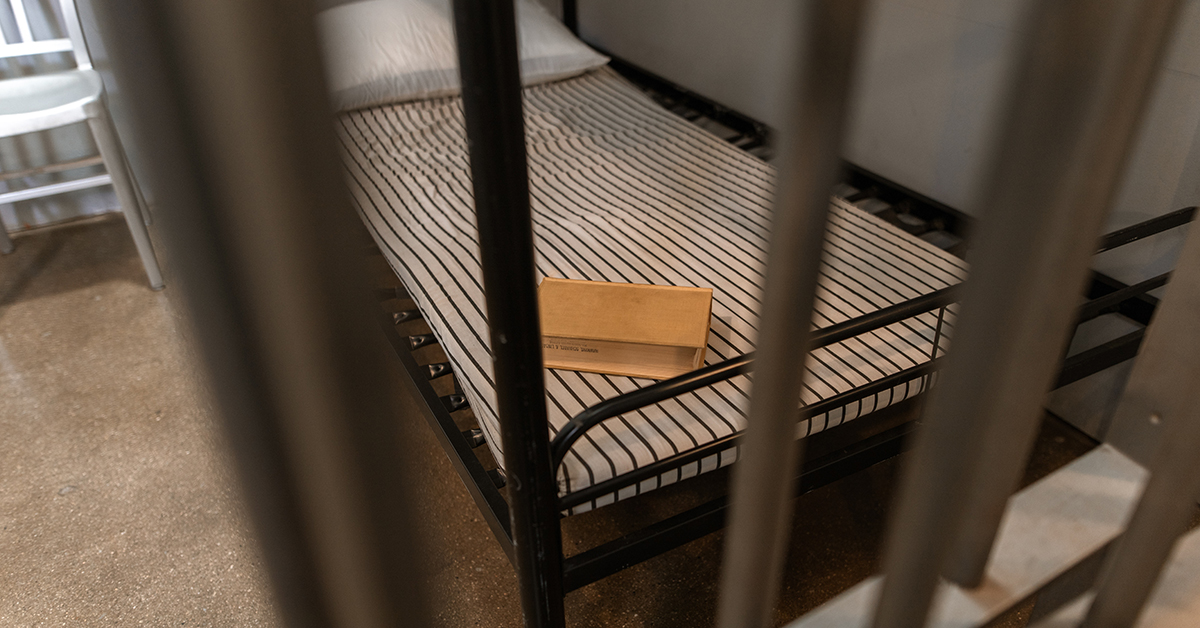In Egypt, the authoritarian government of President Abdel Fattah al-Sisi stifles the voices of many political critics, activists, journalists and human rights defenders. Often, dissenters are subject to human rights abuses such as arbitrary and repeated detention, torture, enforced disappearances and abysmal conditions in detention facilities.
To shine a light on these and other violations that occur inside the justice system in Egypt, the Committee for Justice (CFJ), an independent human rights association based in Geneva, Switzerland, has launched an online database documenting human rights violations. In the context of the Egyptian justice system, there is an absence of transparency and fundamental human rights, such as the right to access to information and the right to freedom of expression, are constantly under threat. The Justice Watch Archive strives to address this by providing access to credible information and raising awareness about patterns of violations, circumstances and victims in Egypt. This online tool enables human rights defenders and the international community to access, analyse and expose human rights abuses such as denial of medical care, poor detention conditions and the loss of life while in custody.
Documenting more than one thousand deaths in custody
The collection of data on violations, which is available in English and Arabic, is built on HURIDOCS’s flagship platform Uwazi, and securely brings together statistics, patterns and data on violations of due process, as well as deaths in prisons and detention centres. The CFJ conceptualised and developed the archive, and is playing a leading role in gathering information, organising the collection, managing the processes and updating the information in the database. HURIDOCS provided technical assistance with the setup and hosting of the database.
Statistics in this particular collection, which only represents a limited cross-section of the human rights situation in Egypt, show that from 2013 to 2021, 1128 deaths occurred in custody, which includes the deaths of 15 children. In 2021 alone, 57 deaths occurred in custody, while 41 of the victims were political prisoners. The archive currently contains data on 1281 victims of unfair trials, 88 cases, 282 places of detention, 14 detainees and 7 military courts.
Exposing the arbitrary detention of lawyers, activists and researchers
Detainees documented in the collection include human rights defenders, lawyers, researchers and politicians. Here we highlight three of those currently in detention.

Ibrahim Metwally Hegazy
Detained for 1552 days*
Arbitrary detention, Denial of medical care, Poor detention conditions, Repeated detention
Ibrahim Metwally Hegazy, a human rights lawyer and the co-founder and coordinator of the Association of the Families of the Disappeared, was arrested on 10 September 2017. He was travelling to Geneva to attend a session of the UN Working Group on Enforced or Involuntary Disappearance (WGEID). His health condition is deteriorating and he requires urgent surgery.

Hoda Abdel Moneim
Detained for 1135 days*
Arbitrary detention, Denial of medical care, Enforced disappearance, Poor detention conditions
Hoda Abdel Moneim, a human rights lawyer who works on documenting human rights abuses, including incidents of enforced disappearance, was arrested at her house in Nasr City in Cairo on 1 November 2018. Her health condition is seriously deteriorating and she suffered a heart attack in February 2020.

Ibrahim Ezz El-Din
Detained for 913 days*
Arbitrary detention, Denial of medical care, Enforced disappearance, Poor detention conditions, Torture
Ibrahim Ezz El-Din, a researcher at the Egyptian Commission for Rights and Freedoms (ECRF) who specialises in housing rights, was arrested near his home in Mokattam area in Cairo on 11 June 2019. He suffers from chronic allergies which cause respiratory problems, as well as depression, which render him particularly vulnerable to a COVID-19 outbreak in prisons.
Snapshot of violations against victims in Egypt
The archive provides a detailed snapshot of the justice system by offering filtered searches, cases, graphs, statistics, maps and victim details. The Justice Watch Archive enables human rights actors and other stakeholders to obtain verified and documented information, which can be key when making legal or policy-related recommendations to Egyptian authorities. The focus of the archive is to monitor and document violations against victims perpetrated by the pillars of the justice system, including the arrest, investigation and trial authorities, the system of punishment and reform and the legislative and legal environment, while highlighting policies and practices related to the justice system.
Watch this video to learn more:
Human rights lawyer and Executive Director of the Committee for Justice Ahmed Mefreh said at the launch of the database that the initial version of the Justice Watch Archive marks the beginning of a new era in monitoring human rights violations in Egypt. “We believe this will significantly help in delivering and verifying the information, identifying the victims closely and showing their own narratives, and, thus, shedding more light on the perpetrators and the places where they have committed their crimes.”
“The Committee for Justice has put tremendous effort and care into the documentation of serious human rights violations in Egypt, and to open up this information for everyone to see and act upon. It is an honour that Uwazi can help these efforts, and it speaks to the capacity of the CFJ team on how they used the tool independently and with such great effect.”
–Friedhelm Weinberg, Executive Director of HURIDOCS
Uwazi as a tool to expose injustice and abuse
The Justice Watch Archive is an example of how the Uwazi platform can become a powerful tool in providing access to information to expose injustice and abuse. The database equips the human rights community and those who defend the victims with credible information and supporting evidence. The CFJ team is dedicated to the cause of enhancing the human rights situation in Egypt and their efforts to provide access to data that is often difficult to obtain, is commendable. The CFJ is in the process of expanding the collection to contain information on 5000 cases and more than 500 detention centres.
By shining a light on the culture of impunity and the abuse in the justice system in Egypt, the CFJ is establishing a new pathway for the human rights community towards a culture of accountability that supports transitional justice efforts.
* Number of days detained as on 10 December 2021
Do you have a public collection of human rights information that needs support? HURIDOCS would love to help. Get in touch!
